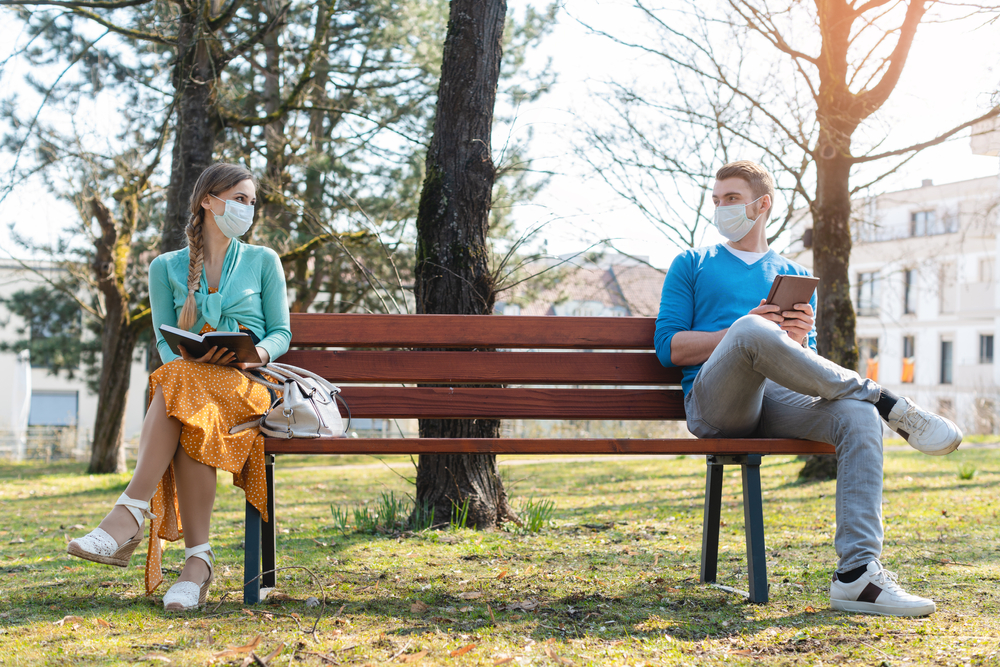This global pandemic is surreal. Each moment brings with it waves of feeling that are so disparate and so unpredictable that their best parallel is Kubler Ross’ 5 stages of grief.
And yet, it’s not grief exactly either. Among the waves of acceptance, anger, denial, bargaining, and depression, there are also many moments of joy and even forgetfulness. So much has changed, but our bodies and minds are adapting.
This may not be true for those who find themselves quarantined in unfamiliar places, nor for those who are suffering in broken homes, nor those living in the urban epicenters of the pandemic. But for those of us in rural communities, or whose work was previously remote and merely continues to be, the surrealness can sometimes come from the moments of familiarity in the midst of global upheaval.
Peering out the window onto my garden, tucked away in the foothills of the Sierra Nevada mountains, I catch myself relaxing in utter forgetfulness. When I come to, I move to gratitude that this is my problem; my challenge is to remain vigilant when the forest around me gives me no sign of danger.
The first glimmers of hope are upon us; the curve appears to be flattening. Soon, even those in the epicenters may face my reality: a world that feels safe from COVID-19, but is actually not yet.
To help those of us already living in a false sense of security and those who may enter it soon, here are five ways to remain vigilant yet fearless for the long haul:
Use habit as your superpower. We are currently normalizing to a pandemic world. In doing so, we are already building new habits like wearing masks and washing hands for 20 seconds. To avoid letting these new habits die too soon, reinforce them creatively. Make masks that you find amusing or beautiful, keep song lyrics posted above your sinks, leave Lysol by your front door for packages. The easier and more creative you can make these new habits, the more likely you’ll be to maintain them.
Find your why. Perhaps your “why” is a loved one who is more vulnerable to complications. Perhaps it’s the medical community who are begging for your cooperation to save their lives. Perhaps it’s a desire to show your children the value of self-sacrifice. Whatever your “why” may be, it is the most essential component to social distance success.
Remain informed. News “fasts” are good, but it’s important to tune into what is happening in your community, country, and world in the ways that you can tolerate right now. Particularly when you feel your “why” slipping or your complacency growing. This pandemic is unfolding at different rates in different cities and nations, so yours may be calm, but the storm is raging somewhere and it’s wise to remember that from time to time.
Practice calmness. Calmness is essential, even if we need to remain informed and vigilant. Our bodies need to cope, we need to release anxiety. Meditation is the key to my calmness and I practice it twice daily (I’m happy to teach you, if you need help). Soothing music, yoga, and time in nature are all deeply calming and rejuvenating for the body, mind, and soul. Fill our free hours with as much of this as possible. If you’re like me, at home with two kids under 6, find ways to do this with your whole family.
Discover new joys. What is life without joy? Wherever we are stuck, let’s find new ways to have fun. Perhaps we can help our neighbors. Maybe we can play games by Zoom with family and friends. Maybe we learn an instrument or read some delicious literature. Whatever we do for diversion, let it be as healthy as possible…we are in a health crisis, right? But, also relax and experience life’s little joys as they come. Bills may pile up, anxiety abounds, but we are in this together – let’s be sure to stop and smell a few roses along the way.
—
About the Author
Gita Matlock is an author, spiritual teacher, humanitarian, mother, lifelong yogi, and leader at Ananda, a global organization dedicated to sharing light and uplifting consciousness. To follow her work, visit gitamatlock.com.





Leave A Comment